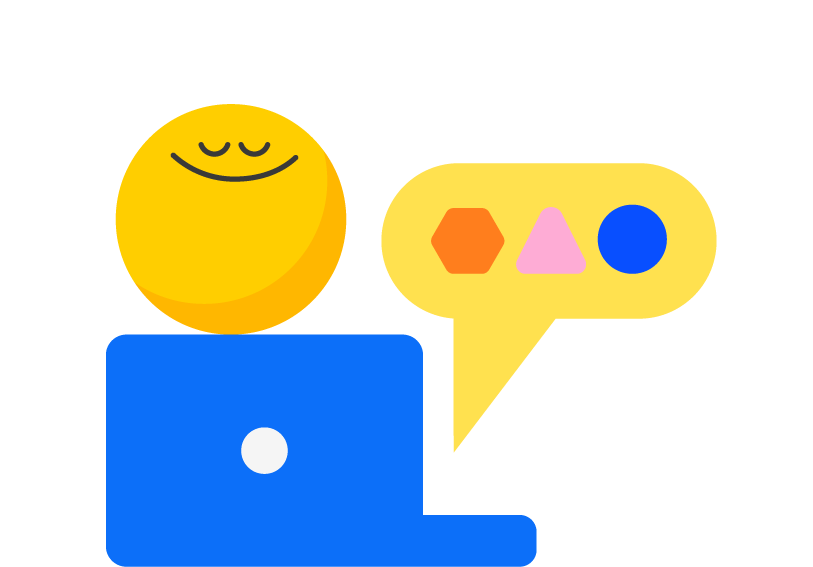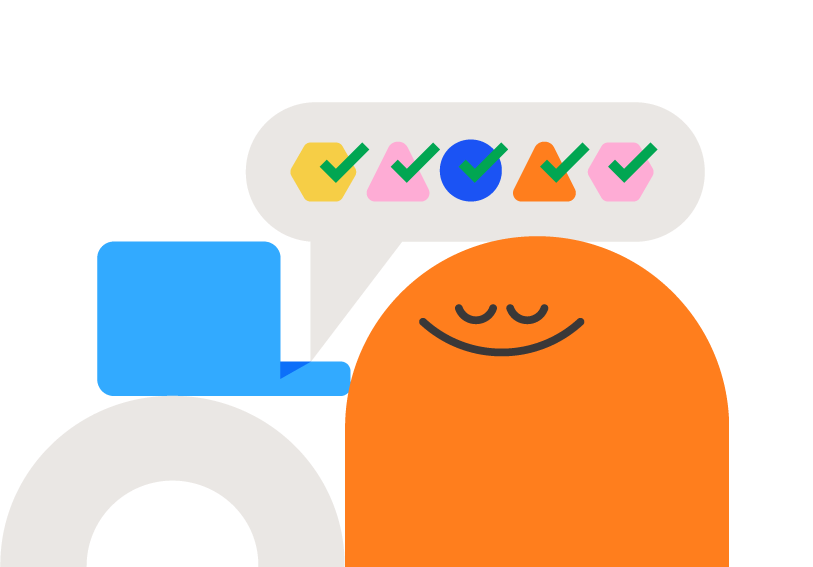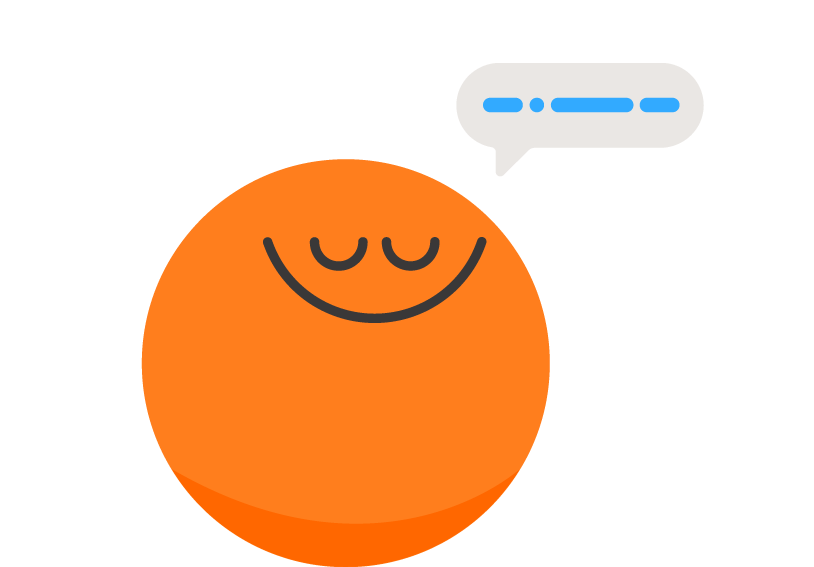Mindfulness and the corporate athlete of today
3 ways mindfulness helps employees reach peak work performance
Athletes have long known that peak performance is all about mindset. It’s one reason why the NBA, the NHL, the US Women’s National Soccer Team, and many other sports organizations have used Headspace to help players reach their top mental condition to compete. And just as mindfulness improves an athlete’s performance, HR professionals and corporate leaders recognize that they can help their teams train their minds in a similar way. Because getting our head in the game makes a world of difference in how we show up — on the field, court, or in the workplace.
If businesses and leaders could develop a culture of mindful performance, they would be cultivating teams that give 100%. Headspace’s behavioral scientists have identified three ways that such a culture can improve employees’ work performance and protect their mental well-being to avoid burnout.

Mindful performance: bringing employees best selves to work
The notion of the corporate athlete is well established. With COVID-19 creating rapid shifts in workplace demands for many of us, and employees needing to become more adaptive and flexible, the practices that elite athletes use to train their minds are more relevant than ever to help people in the workplace.
Employees are increasingly expected to be always ‘on’ — all while balancing financial and personal pressures. Headspace’s 2021 Employee Mental Health Trends Report found that work stress is now one of the top three sources of stress for workers. Leaders are feeling it as well. According to a report from Forrester, forty percent of corporate leaders feel “overwhelmed by their work,” and about a third struggle to “be present and find focus while they’re working.”
It’s clearly not as straightforward as putting on our “work head” and immediately clicking into gear. We only have one mind. The mind we experience at home is the mind we take to work, and vice versa. Keeping up with the demands of modern work, alongside personal lives that seem ever busier, is a challenge that’s here to stay. Incorporating mindful performance tactics is one science-based, practical method for responding to these pressures — allowing us to be present, focused, and “in the zone” when it matters.
Mental training: a three-part process
If we get our minds right, we’ll get a lot of other things right, too. That’s why mental training is a proactive approach. At Headspace, we view a performance mindset as a three-part process: prepare, perform, and recover. With the right resources and programs, business leaders and HR professionals can help their teams implement techniques used by athletes to develop habits that protect mental well-being and improve focus for better work performance.
Teams and organizations have turned to Headspace as a mental health solution for their athletes, but we always flip the conversation to be about performance. If we position meditation as a mental health tool, we continue to perpetuate a reactive approach to the mind. If we position meditation as a performance tool, we instead shape culture to take a proactive approach to our mental fitness.
Lindsay Shaffer, Sr. Director of Partner Experience at Headspace
1. Prepare
Deloitte’s Workplace Burnout Survey tells us 91% of respondents said that feeling overwhelmingly stressed negatively affects the quality of their work. And there’s a biological reason for this. Our nervous system has a built-in stress response that causes physiological changes (higher heart rate, muscle tension, faster breathing) meant to allow the body to combat stressful situations.
Not all stress is bad — stress often kicks in when we need it to operate at the edge of our abilities. Think of preparing for a big presentation. Stress helps us take this event seriously, prepare, and react appropriately. But when we don’t have the resources to manage it, the same physiological response that was driving us forward can develop into overwhelming stress that inhibits important cognitive functions like focus and memory. When athletes who have trained in mindfulness arrive on the track, court, or field, they’ve already managed stress and racing thoughts. Their minds are nowhere else but in the moment. Employees can show up at work with that same mindset, too.
The not knowing if you will be in the right mindset or not, not knowing how to pull yourself out of a funk, not knowing how to focus and relax – the not knowing is the risky part. Wouldn’t it be great to feel “in the zone” more often? That’s why I meditate.
Colleen Quigley, Olympic runner and Headspace member
2. Perform
Mindfulness has numerous mental and physical benefits, but focus, creativity, and communication are three areas of work performance that a mindfulness practice can help improve.
Focus: Meditation has been shown to increase sustained attention and reduce mind-wandering. When we sit with the mind, we deliberately notice when it has wandered, and then we deliberately refocus attention on the breath. We strengthen the mental muscle of focus each time we practice this because we are strengthening the neural networks responsible for checking where our attention is, ensuring it remains anchored to the desired object of focus — the breath. Over time, and the more regularly we meditate, our attention will wander less and less.
Creativity: Training the mind cultivates a mind that is more at ease and more open. This decreases cognitive rigidity and facilitates more creative problem-solving by making it easier to generate and apply new solutions to old problems. Research also shows that longer term meditators have a greater capacity to be open to exploring topics and solutions from all angles, without being fixed on one common, or popular, view or interpretation. This greater tolerance for uncertainty helps to deliver more creative work because these individuals are less likely to be satisfied by partial or sub-optimal solutions to complex problems.
Communication: When we train in mindfulness, we enhance both empathy (the ability to understand and share the feelings of others) and compassion (empathic concern for others that results in a desire to help). Both of these qualities allow for more open and effective communication styles that consider and respond to the needs, values, and life experiences of others.
Practicing mindfulness cultivates greater sympathy toward the self, which also fosters compassion toward others. This allows us to notice the effect others have on us, as well as the effect our own behaviors and communication styles have on other people. Organizations need both leaders and employees to show up equipped with the empathic and compassionate listening skills to allow them to effectively navigate difficult conversations.
Dr. Christelle Ngoumen, PhD, Sr. Behavioral Scientist at Headspace
3. Recover
Bodies need rest and recover to perform. The mind is no different.
Proper time away from work allows teams to stay energized and engaged. Practicing mindfulness can be an effective way to take better breaks that actually give employees the mental rest they need. One study published in the American Journal of Psychiatry showed that US Marines who engaged in “mindfulness-based mind fitness training” displayed better recovery from stress after completing the course.
Most of us are well aware that a good night’s rest is also necessary for optimal mental performance. Meditation has been shown to improve the quality and efficiency of sleep, a vital need for any worker regardless of industry, geography, or seniority.
Athletes use mindful performance to bring their A-game and increase their mental well-being. They understand that the time they dedicate to training their minds to be fully present and engaged in the moment, without distraction or judgment, is as important as training their bodies. If business and HR leaders want to enable their people to bring their best selves to work in today’s “always-on” work environment, mindful performance is a proven approach to improving individual productivity, resilience, and organizational outcomes — training that helps everyone win.
Resources
We’re serious about research and results. Dive in to the resources below to learn how mindfulness training can benefit your team and your business goals.

Why mindful cultures shouldn't end at 5:30pm

How mindfulness can play a key part in an inclusive diversity strategy

How to navigate and motivate change

Implementing a mindful culture: how to get company buy-in

Why you should check in on that colleague today

Why your top talent is leaving (and what to do about it)

Headspace Article: What's missing with work well-being?

Headspace Article: Insights from our first podcast

Headspace Article: Well-being in the world of work

Headspace Article: Creating a caring workplace

Headspace Article: How a mindful brand can attract happier, healthier talent

Headspace Article: 5 traits of high-performance work culture

Headspace Article: Announcing the 2022 Mindful Workplace Award Winners

Headspace e-Book: Turning negative stress into positive change

Headspace e-Book: How to strengthen teams by reducing group stress

Headspace x Forrester report: Mindfulness and The Leader of The future

Headspace x AMN Healthcare e-Book: The mental health impacts of healthcare burnout

Headspace Webinar: Compassionate cultures for working parents

Headspace Article: How mindfulness can help teams prevent burnout

Headspace Case Study: Hootsuite x Headspace

Stay in the loop
Be the first to get updates on our latest content, special offers, and new features.
By signing up, you’re agreeing to receive marketing emails from Headspace. You can unsubscribe at any time. For more details, check out our Privacy Policy.
- © 2026 Headspace Inc.
- Terms & conditions
- Privacy policy
- Consumer Health Data
- Your privacy choices
- CA Privacy Notice
